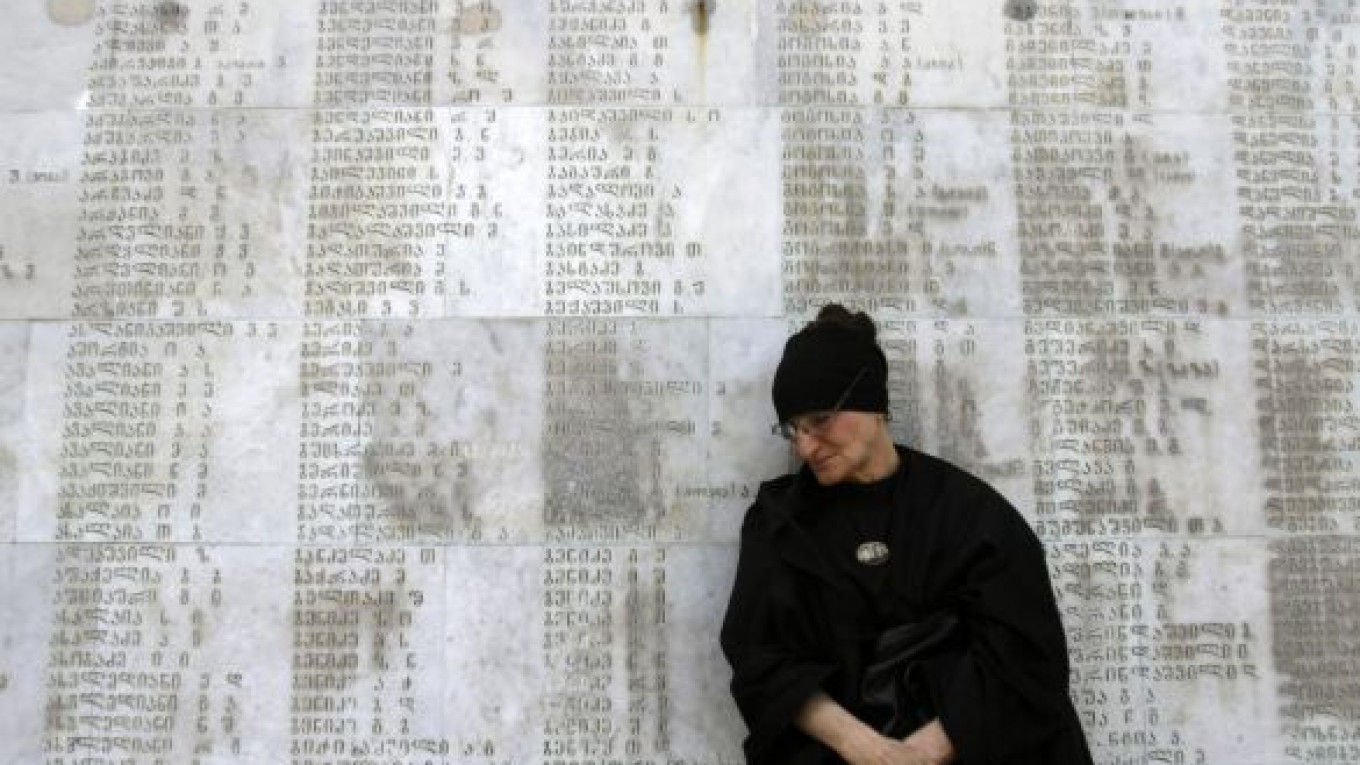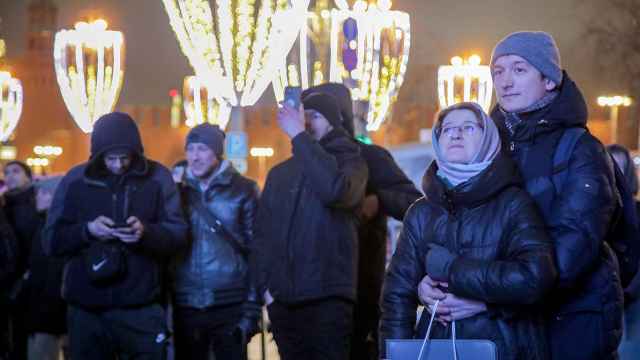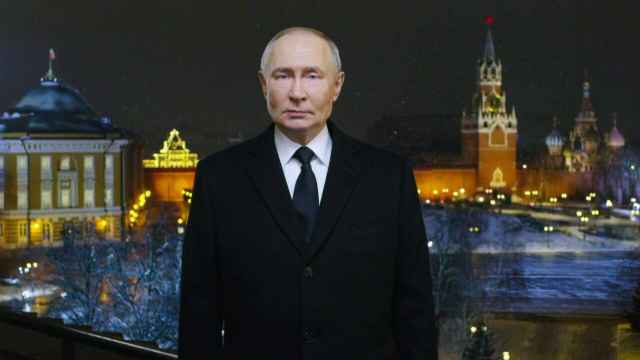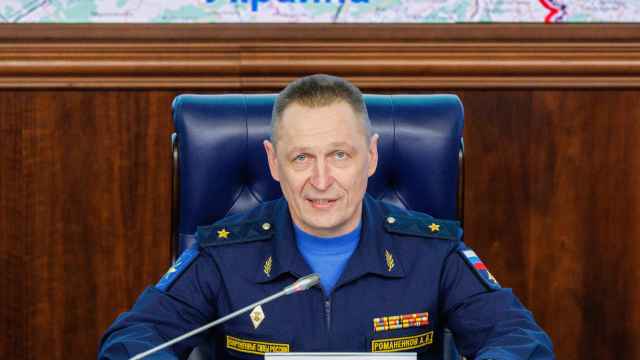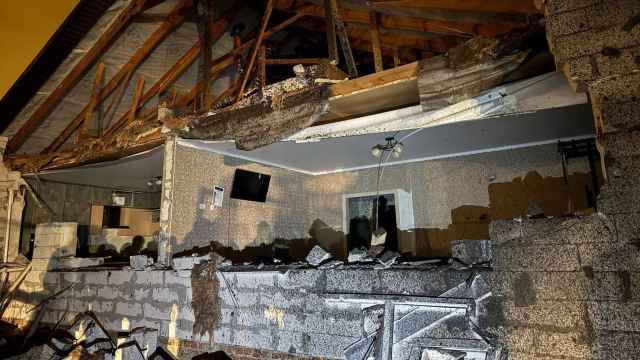BRUSSELS — After decades of tension, NATO and Russia are working together on a series of joint initiatives that range from supplying troops in Afghanistan to fighting airline hijackings.
It is far from certain, however, that the new cooperation to fight immediate and shared threats will help the former Cold War adversaries resolve longer-standing and more fundamental differences over issues such as NATO's eastward expansion or Georgia's relations with its Russian-backed breakaway regions.
Russia, which wants to quash militancy and drug trafficking in its neighborhood, has opened a land route to resupply the 140,000-member NATO force in Afghanistan and is discussing giving helicopters to Afghanistan's nascent air force and training its anti-drug police.
Recently, Russia and NATO launched a shared system to monitor air traffic above most of the Northern Hemisphere in case of terrorist threats. In the planning stages is a combined anti-missile defense system that would protect all participating nations.
U.S. Admiral James Stavridis, the supreme NATO commander in Europe, said he would travel to Russia in the fall to discuss missile defense, Afghanistan, counterproliferation, counterterrorism, and counternarcotics, among other efforts.
"I am highly interested and actively pursuing zones of cooperation with Russia," he said in an interview.
But some observers warn against overplaying the significance of those initiatives, pointing out that unity within the NATO alliance itself has been fraying since the dissolution of the Soviet-led Warsaw Pact nearly two decades ago, which was its only true military rival.
"There are so many splits within NATO and so much of NATO policy has devolved to the member states that I'm not sure whether these improving relations with the alliance mean anything tangible to Russia," said George Friedman, who heads the global intelligence company Stratfor.
Other observers also note that despite the increasingly close ties, an element of distrust still lingers over the relationship.
For example, NATO continues to update contingency plans for the defense of the Baltic states, on Russia's doorstep, although NATO officials say the measure is primarily intended to reassure alliance governments that NATO remains committed to the territorial defense of all member states — its core function since it was founded 60 years ago.
After the end of the Cold War, there were years of improving ties before NATO's bombing of Serbia and Kosovo in 1999, which Moscow strongly opposed.
Cooperation again improved after 2000, only to hit rock bottom following the Russia-Georgia war in August 2008, when the alliance — under pressure from the administration of former U.S. President George W. Bush — froze relations with Moscow.
The conflict erupted after Georgian troops tried to regain control over the separatist province of South Ossetia. Russia prevented that and now has troops stationed there, as well as in the like-minded province of Abkhazia. Moscow has recognized the independence of both of them — a move that the West has strongly opposed.
Since then, President Barack Obama has announced a "reset" of U.S. ties with Russia, and there has been a significant shift toward cooperation.
In April, Obama and President Dmitry Medvedev signed the New START nuclear arms reduction treaty, and in June, Russia agreed to support UN sanctions against Iran because of its nuclear program. NATO quickly followed suit.
During a visit to Moscow, NATO Secretary-General Anders Fogh Rasmussen said collaboration would continue to grow and lead to the creation of the combined missile defense system by 2020, "which will not only protect us from proliferation, but will also bind us together politically as well."
But the anti-missile defenses have yet to be approved by alliance leaders. Some of the 28 member states are skeptical about the proposed system, citing declining defense budgets at a time of economic crisis.
Fyodor Lukyanov, editor of the Russia in Global Affairs journal, said ties have progressed more slowly than they could have, largely because of an underlying lack of trust.
"The relationship between NATO and Russia is better than it was two years ago, [but] in order for a real breakthrough to happen, both sides need to change their attitudes," he said.
A Message from The Moscow Times:
Dear readers,
We are facing unprecedented challenges. Russia's Prosecutor General's Office has designated The Moscow Times as an "undesirable" organization, criminalizing our work and putting our staff at risk of prosecution. This follows our earlier unjust labeling as a "foreign agent."
These actions are direct attempts to silence independent journalism in Russia. The authorities claim our work "discredits the decisions of the Russian leadership." We see things differently: we strive to provide accurate, unbiased reporting on Russia.
We, the journalists of The Moscow Times, refuse to be silenced. But to continue our work, we need your help.
Your support, no matter how small, makes a world of difference. If you can, please support us monthly starting from just $2. It's quick to set up, and every contribution makes a significant impact.
By supporting The Moscow Times, you're defending open, independent journalism in the face of repression. Thank you for standing with us.
Remind me later.


